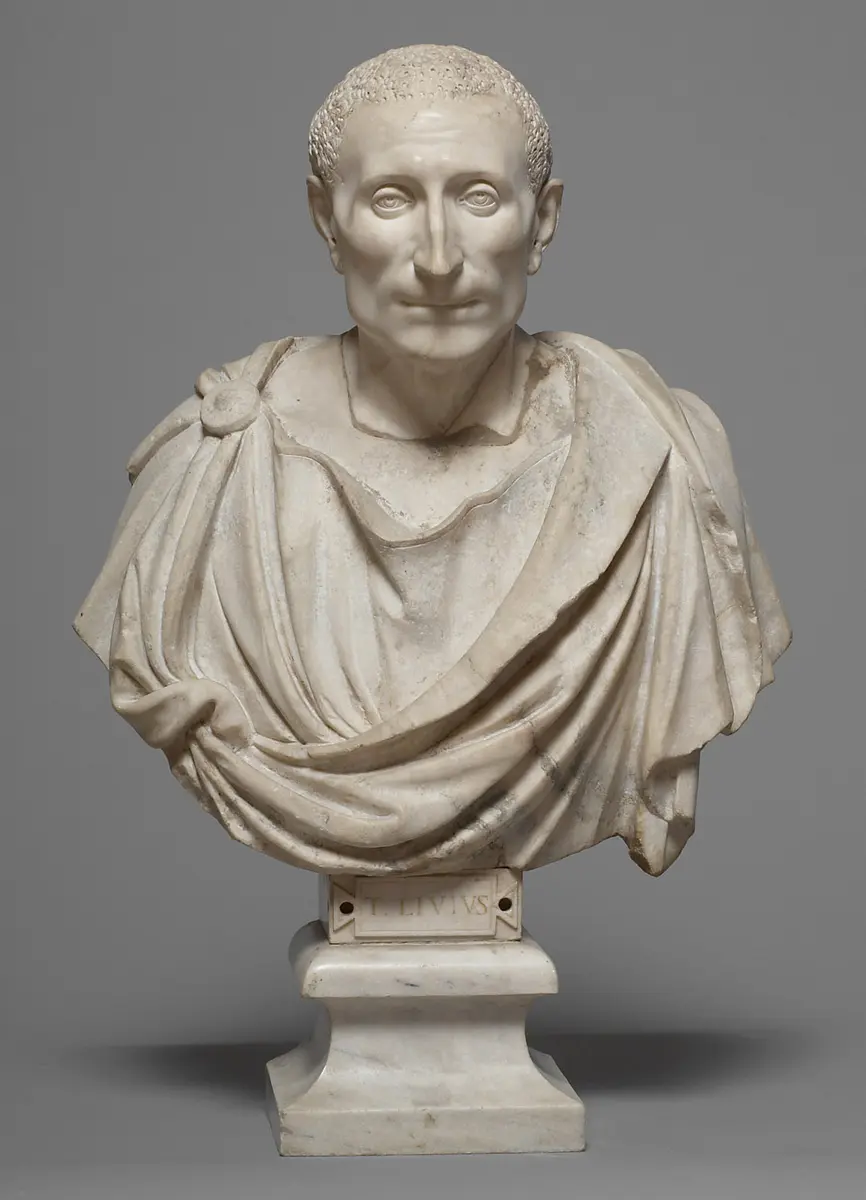Titus Livius; Büste
Livius (or Liry), the most important Roman historian of the Augustan period, came from Padua, where he had been enthusiastically revered from the beginning of the Renaissance. In 1546/47, a monument was erected to him in the Palazzo della Ragione and decorated with a bust “all’antica”, which was of great significance for the development of this genre in Padua and Venice. Demand for more depictions of Livius soon increased, mainly among the city’s university scholars.
Titel:
Titus Livius; Büste
Zeit:
um 1550
Objektbezeichnung:
Statue
Kultur:
Paduanisch
Material/Technik:
Stein, Marmor
Maße:
H. 67 cm
Bildrecht:
Kunsthistorisches Museum Wien, Kunstkammer
Inv. Nr.:
Kunstkammer, 7499
Provenienz:
(48/PL/1922); from the Estensian Collection; 1872 Catajo Inv., No.1230; 1803 Catajo Inv., p.2
